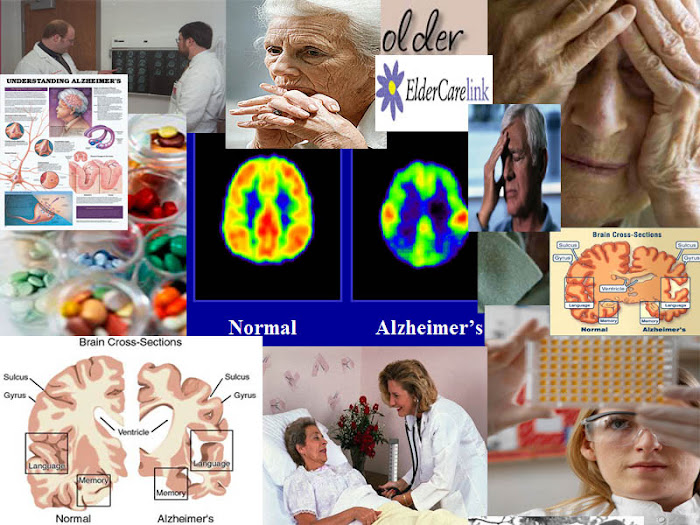Things are actully seeming to get easier for me as far as my grad project is concerned. Despite the fact that I accidentally dropped my lap top during the second to last week of school (AT ALL TIMES TO BE WITH OUT IT!) everything is coming together. Two days ago I made my table timeline and I have a very good idea as to what I want to get out of this project and the time I have to complete it. I altered my essential question:
("How do families cope with the struggles inherited after a loved one has fallen victim to Alzheimer's disease and other forms of dementia?")
I thought that it would be a more clear way to express how familes are also affected by Alzheimer's disease/Dementia. Im sure I said in a recent post that I am extremely excited to participate in the Memory Walk that will take place here in Pittsburgh. I have a hundred different ideas for fundraising money to donate and different ways to get my fellow school mates involved in alzheimer's awareness.
I still have tons of work ahead of me, but with school coming to a very close end I think I'll be a little more excited to research my topic. Sooner or later I'll become a master mind in Alzheimer's disease reseach and I plan to make my panel very proud of me(whomever they maybe ;) )
Friday, March 27, 2009
Monday, March 16, 2009
Nothing Done!!!! (blame DeAnna....haha)
I didnt really accomplish anything I would have liked to accomplished. Mainly because I keep finding it hard to focus. I did however attempt to find events that were dedicated to Alzheimer awarness, but I had no luck of any of them being near pittsburgh.
One day ill re-write my foundation questions, that way ill be able to focus more on what it is im trying to figure out. Theres alot to focus on with thise disease and im worried ill keep getting set of track. Hopefully that wont occur, ill figure all out soon enough.
One day ill re-write my foundation questions, that way ill be able to focus more on what it is im trying to figure out. Theres alot to focus on with thise disease and im worried ill keep getting set of track. Hopefully that wont occur, ill figure all out soon enough.
Subscribe to:
Comments (Atom)
Key Terms
- 1. Warning Signs: There are 10 classic warning signs of Alzheimer's disease, which include: memory loss, Difficulty performing familiar tasks, problems with language, disorientation to time and place, poor or decreased judgment, problems with obstract thinking, misplacing things, changes in mood or behavior, changes in personality, and loss of initiative.
- 2. Targeted Victims: Most patients with Alzheimer's disease are over 65 years of age.
- 3. Research: Researchers have learned most of what they know about Alzheimer's disease in the past 15 years. Researchers are looking for new treatments to alter the course of the disease and improve the life of the people with dementia. Healh professionals divide symptoms in "Congative, Behavioral and mental" this will help detemine which treatment is best to use in the different cases.
- 4. Counseling: Caring for the caregiver is an essential element of managing the patient with Alzheimer's disease. Caregiving is a distressing expeirence. On the other hand, caregiver education delays nursing home placement of Alzheimer's disease patients. (The three(3) R's: "Repeat, Reassure, and Redirect.") These can help caregivers reduse troublesome behaviors and limit the use of medications.
- 5. Treatment: There is no cure for Alzheimer's disease but there are drug and non-drug treatments that can help with both "Cognitive" and behavioral symptoms.
- 6. Alzheimer’s Disease: Is a brain disease that destroys brain cells which causes problems with memory, thinking and behavior. It is sever enough to affect work, lifelong hobbies, or social life. It gets worst over time, and is fatal. It is the sixth-leading cause of death in the United States.
Helpful Links
- Alzheimer's Association
- Alzheimer's Disease Research
- Alzheimers association:AD Facts & Figures
- Class Blog Center
- HelpGuide: Caregivers Guide
- HelpGuide: What Care Givers Need
- Knowing The Stages of Alzheimers
- Making the Diagnosis
- Managing Alzheimer's with Combination Care
- MedicineNet: Symptoms,Diagnosis,& Treatment (AD)
- Namenda: AD and Its Effects on The Brain
- Namenda: Symptoms & Stages
- National Institute of Aging
- Stages of Alzheimers
- WebMD
- What is Alzheimers
- wikipedia: AD Caregiving and Dementia
- Wikipedia:AD
